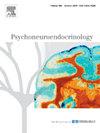hpa轴多基因评分在塑造成年初期幸福感中的作用:一项多研究方法。
IF 3.6
2区 医学
Q2 ENDOCRINOLOGY & METABOLISM
引用次数: 0
摘要
刚进入成年期是一个机遇和脆弱并存的发展阶段,在这个阶段,幸福感在很大程度上取决于有效的压力调节。鉴于下丘脑-垂体-肾上腺(HPA)轴是应激调节的关键生物系统,本研究探讨了HPA轴的累积遗传变异如何在这一阶段对健康做出贡献。在研究1中,一项对1318名参与者的横断面分析表明,较高的累积遗传评分(CGS)反映了更多的适应性hpa轴功能,与较高的情感平衡,生活满意度和总体繁荣得分显著相关。研究2采用纵向设计(N = 348),并证实这些关联在12个月内保持稳定。研究3探讨了潜在的机制,表明较高的CGS预示着更强的社会适应性和更低的感知压力,这介导了CGS与幸福感之间的联系。总之,这项研究表明,HPA轴的多基因敏感性通过改变成年初期的心理途径来支持幸福感。本文章由计算机程序翻译,如有差异,请以英文原文为准。
The role of HPA-axis polygenic scores in shaping well-being during emerging adulthood: A multi-study approach
Emerging adulthood is a developmental period marked by both opportunity and vulnerability, where well-being depends heavily on effective stress regulation. Given that hypothalamic-pituitary-adrenal (HPA) axis is a key biological system in stress regulation, this multi-study explored how cumulative genetic variations in the HPA axis contribute to well-being during this stage. In Study 1, a cross-sectional analysis of 1318 participants, showed that a higher cumulative genetic score (CGS), reflecting more adaptive HPA-axis functioning, was significantly associated with greater scores on affect balance, life satisfaction, and overall flourishing. Study 2 used a longitudinal design (N = 348) and confirmed that these associations were stable over 12 months. Study 3 explored underlying mechanisms, demonstrating that the higher CGS predicted greater social adaptability and lower perceived stress, which mediated the link between the CGS and well-being. Together, this research indicates that the polygenic sensitivity of the HPA axis supports well-being through modifiable psychological pathways in emerging adulthood.
求助全文
通过发布文献求助,成功后即可免费获取论文全文。
去求助
来源期刊

Psychoneuroendocrinology
医学-精神病学
CiteScore
7.40
自引率
8.10%
发文量
268
审稿时长
66 days
期刊介绍:
Psychoneuroendocrinology publishes papers dealing with the interrelated disciplines of psychology, neurobiology, endocrinology, immunology, neurology, and psychiatry, with an emphasis on multidisciplinary studies aiming at integrating these disciplines in terms of either basic research or clinical implications. One of the main goals is to understand how a variety of psychobiological factors interact in the expression of the stress response as it relates to the development and/or maintenance of neuropsychiatric illnesses.
 求助内容:
求助内容: 应助结果提醒方式:
应助结果提醒方式:


